Slug
digital-health
Video
Category
Digital Health
Excerpt
Digital health refers to the use of information and communication technologies in medicine and other health professions in order to manage illnesses and health risks and promote well-being.
Authors
Tags
Featured
Featured
Ready to Publish
Ready to Publish
Publish Date
Dec 26, 2022
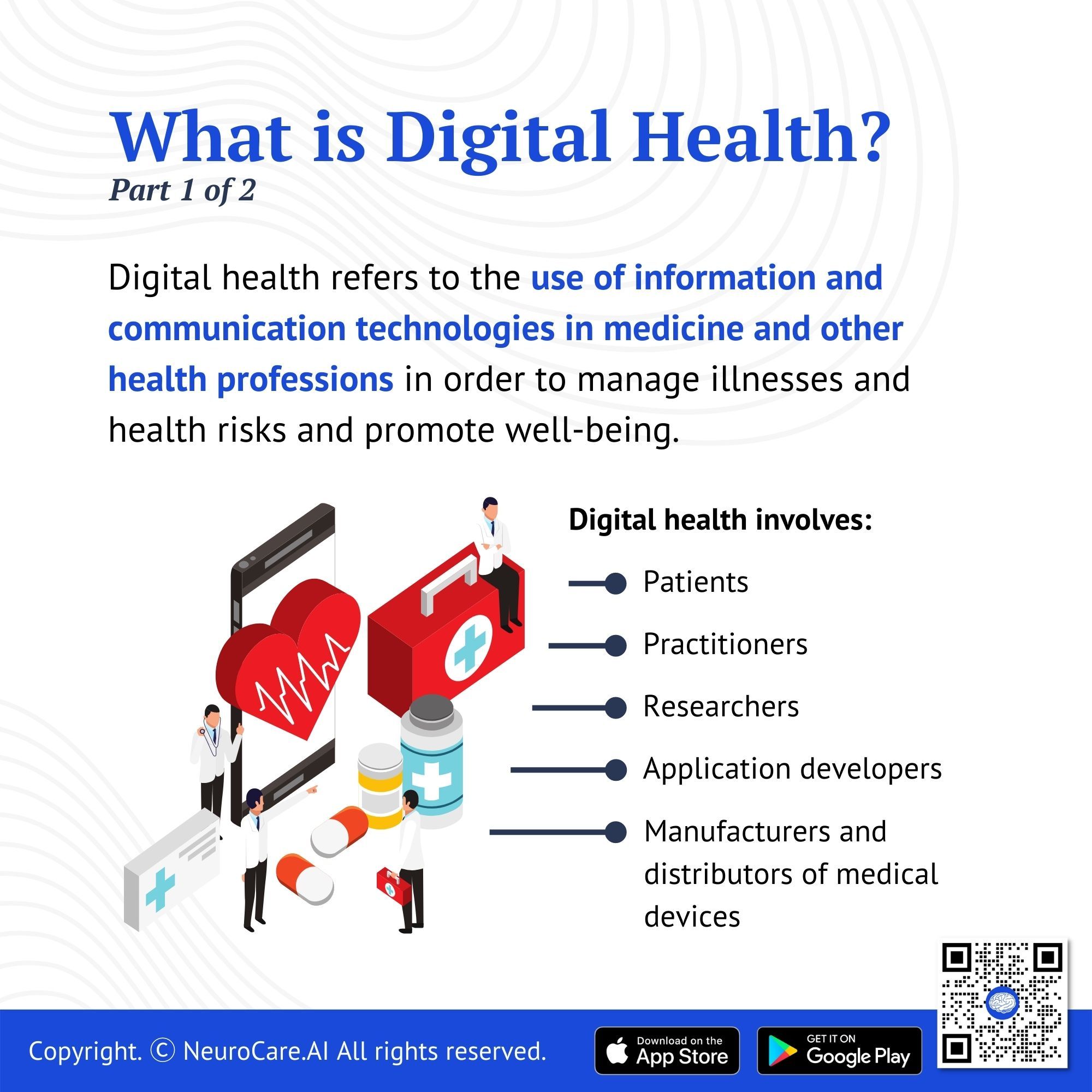
What is Digital Health?
Digital health refers to the use of information and communication technologies in medicine and other health professions in order to manage illnesses and health risks and promote well-being.
Digital health involves patients/consumers, practitioners, researchers, application developers, and manufacturers and distributors of medical devices. The role of digital health in healthcare is becoming increasingly important.
As a result of the COVID-19 pandemic, the ongoing digital transformation in healthcare has been accelerated. Online symptom checkers, patient portals, remote patient monitoring tools, and telehealth are among the most impactful COVID-19 technologies, according to Forrester Research.
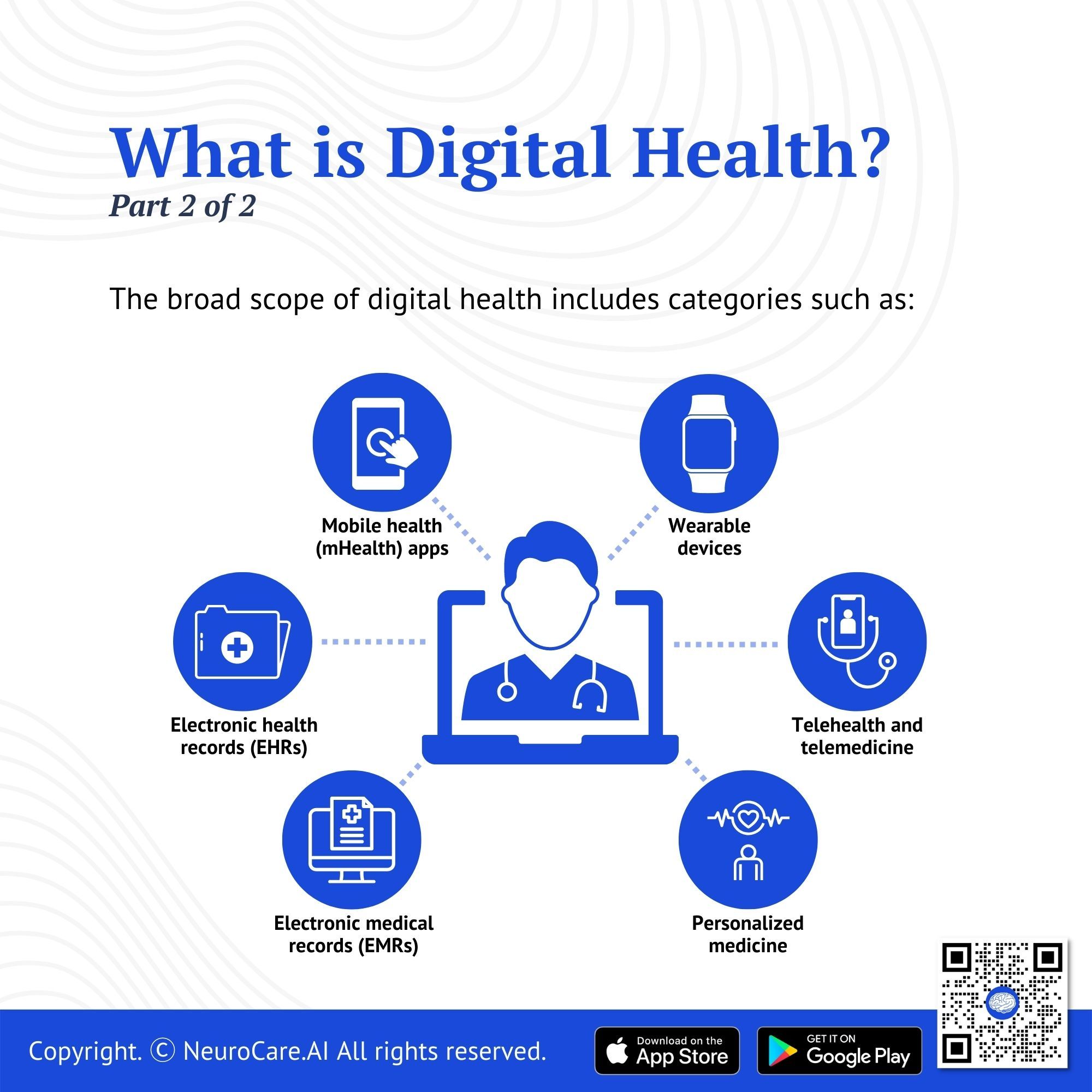
The Umbrella of Digital Health
The broad scope of digital health includes categories such as:
- Mobile health (mHealth) apps
- Electronic health records (EHRs)
- Electronic medical records (EMRs)
- Wearable devices
- Telehealth and telemedicine
- Personalized medicine
Digital technology has revolutionized healthcare with mobile apps and software that assist doctors in their daily clinical decisions. The use of digital health tools has the potential to improve our ability to diagnose and treat diseases accurately, as well as to strengthen the delivery of health care to individuals.
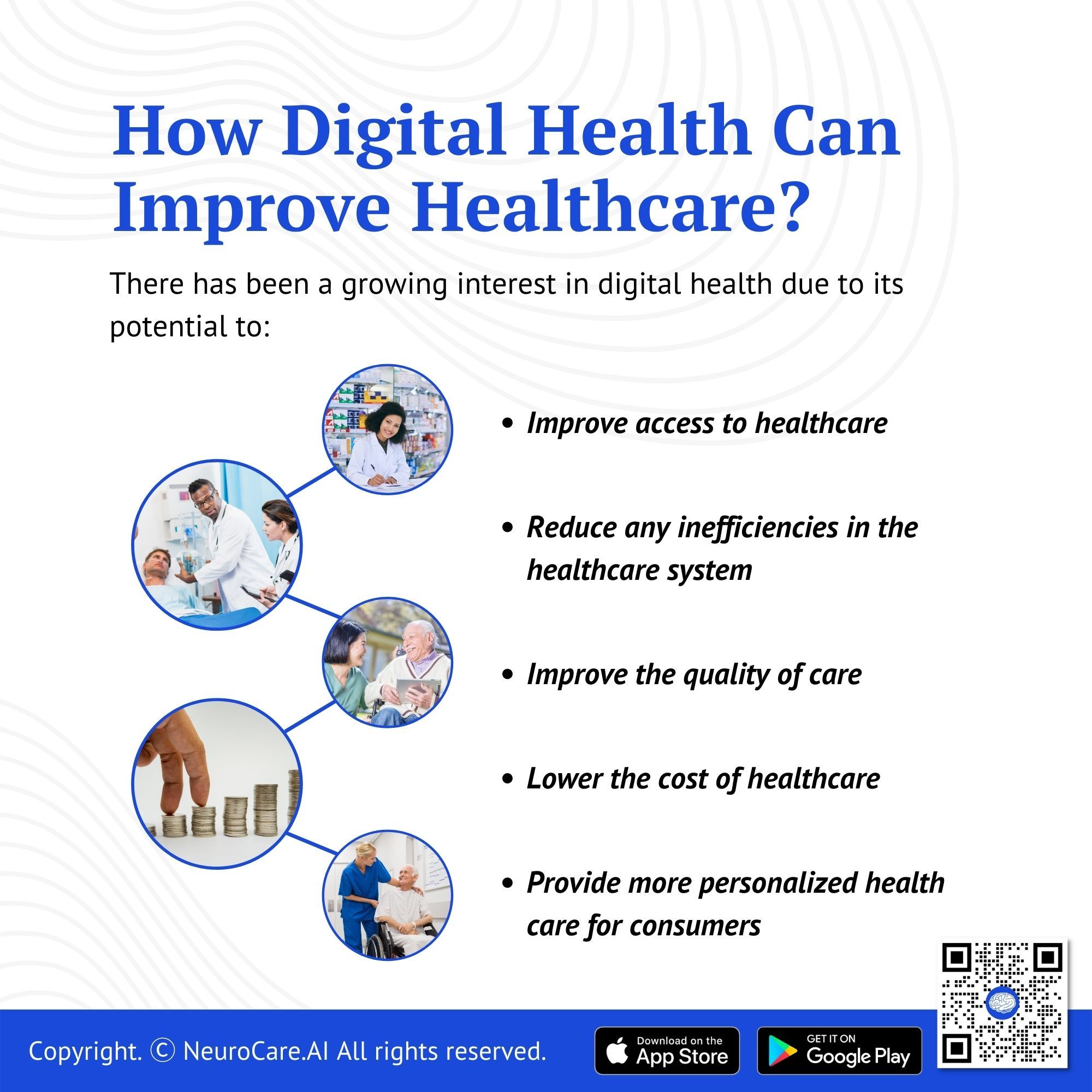
How Digital Health Can Improve Healthcare?
There has been a growing interest in digital health due to its potential to:
- Improve access to healthcare
- Reduce any inefficiencies in the healthcare system
- Improve the quality of care
- Lower the cost of healthcare
- Provide more personalized health care for consumers
Smartphones, social networks, and internet applications are not only changing the way we communicate, but these are also providing new ways to personally track our health and well-being and giving us greater access to health information. These advancements are contributing to the convergence of people, information, technology, and connectivity to improve health care and health outcomes.
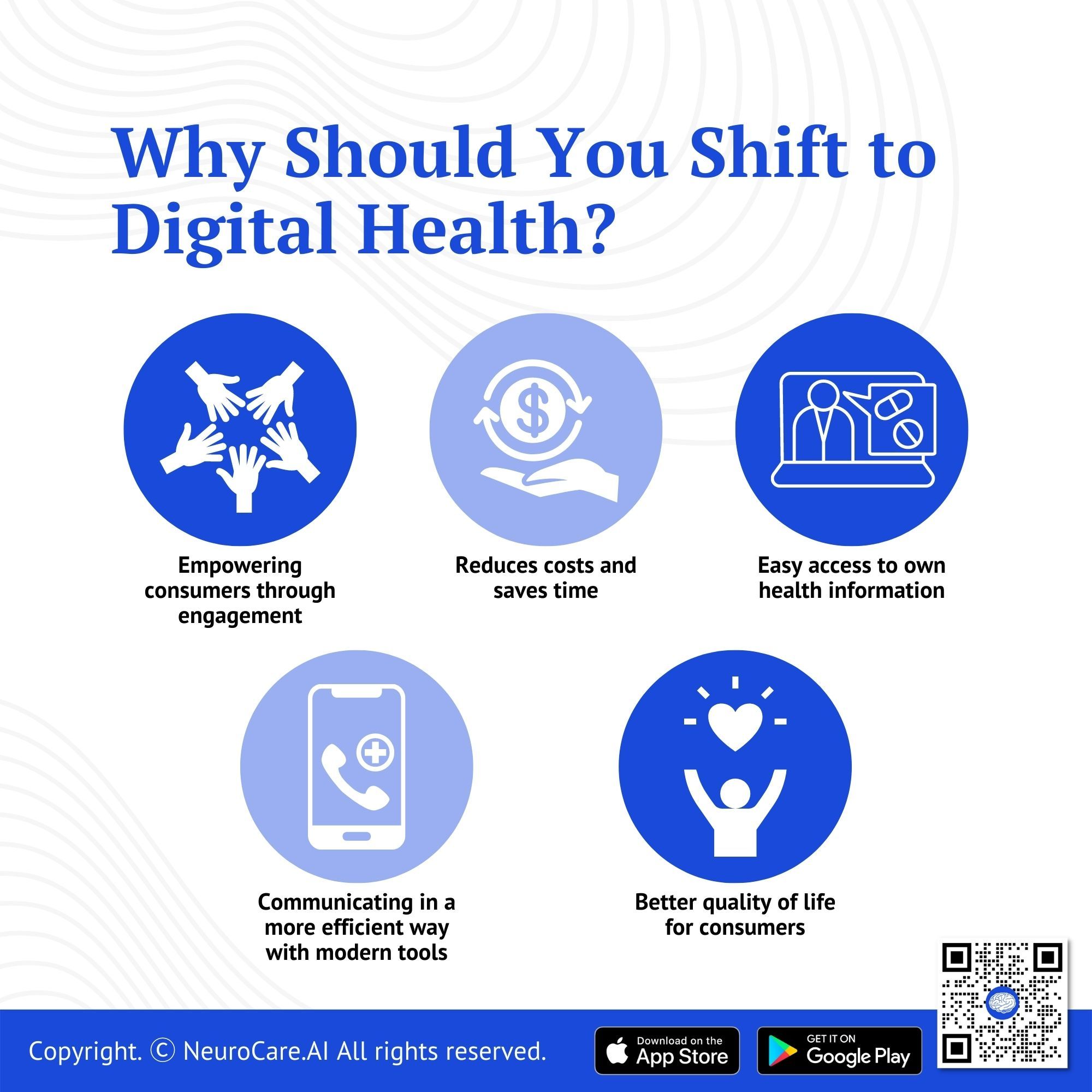
Why Should You Shift to Digital Health?
As the digital health revolution continues to grow, its benefits become more apparent. Apart from the benefits that have already been mentioned, here are some other reasons why you should embrace digital health today:
- Empowering consumers through engagement. Tracking health metrics, reporting symptoms, and planning fitness activities are all ways that digital health allows consumers to take on their own health management.
- Reduces costs and saves time. Artificial intelligence (AI) is a key component of advancements in digital health that are improving accuracy in diagnosis, treatment, and prediction of health outcomes. Consumers can also save time and money by saving on travel expenses when using telemedicine to schedule regular appointments.
- Easy access to own health information. Consumers and their authorized caregivers can conveniently access their health information, such as medications and medical appointments, using secure logins like patient portals.
- Communicating in a more efficient way with modern tools. Secure communication tools make it possible for consumers to ask questions and provide information about their health to their doctors.
- Better quality of life for consumers. The use of digital health can improve the patient experience in terms of their health management, by improving the patient's comfort, making their medical appointment more convenient, and reducing waiting times.
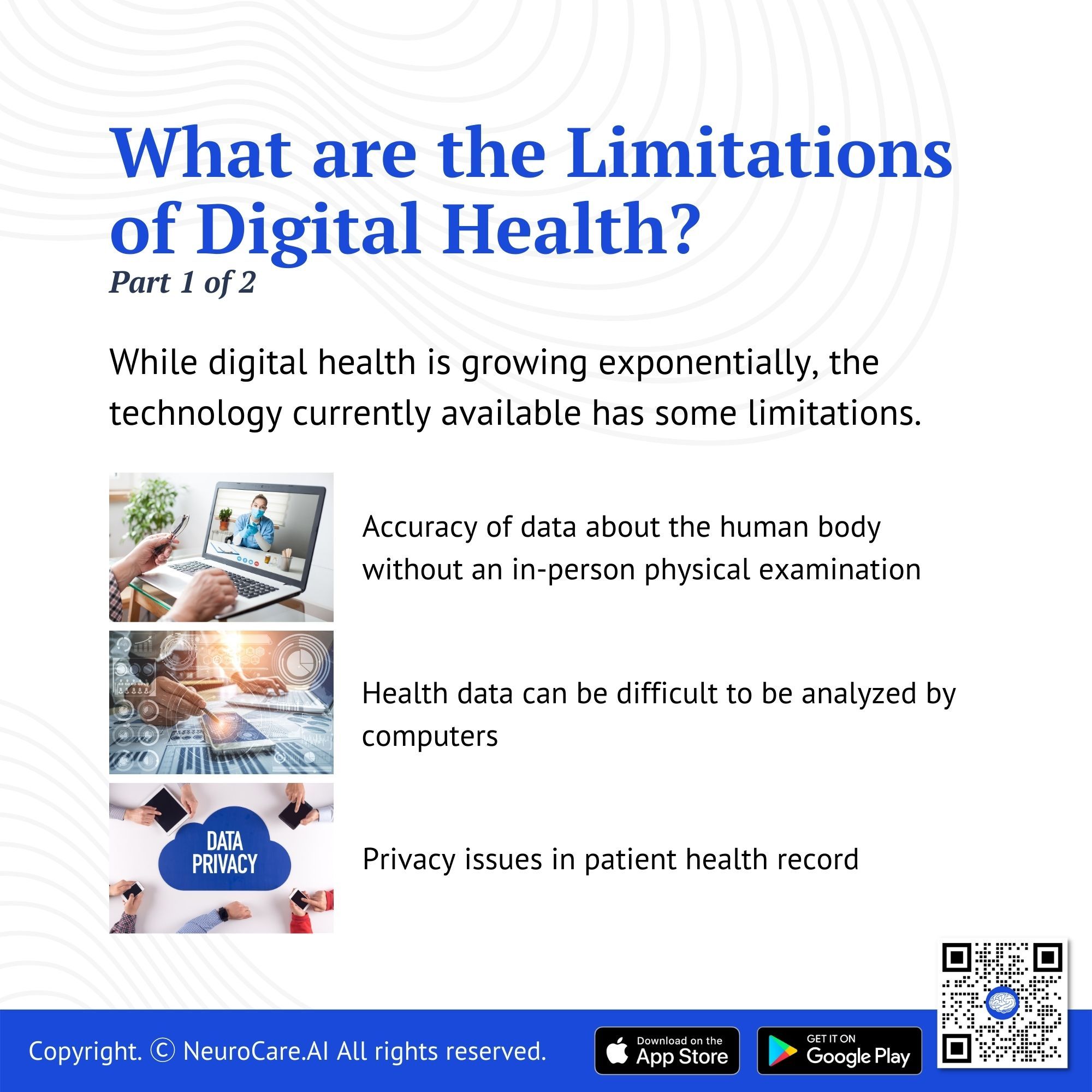
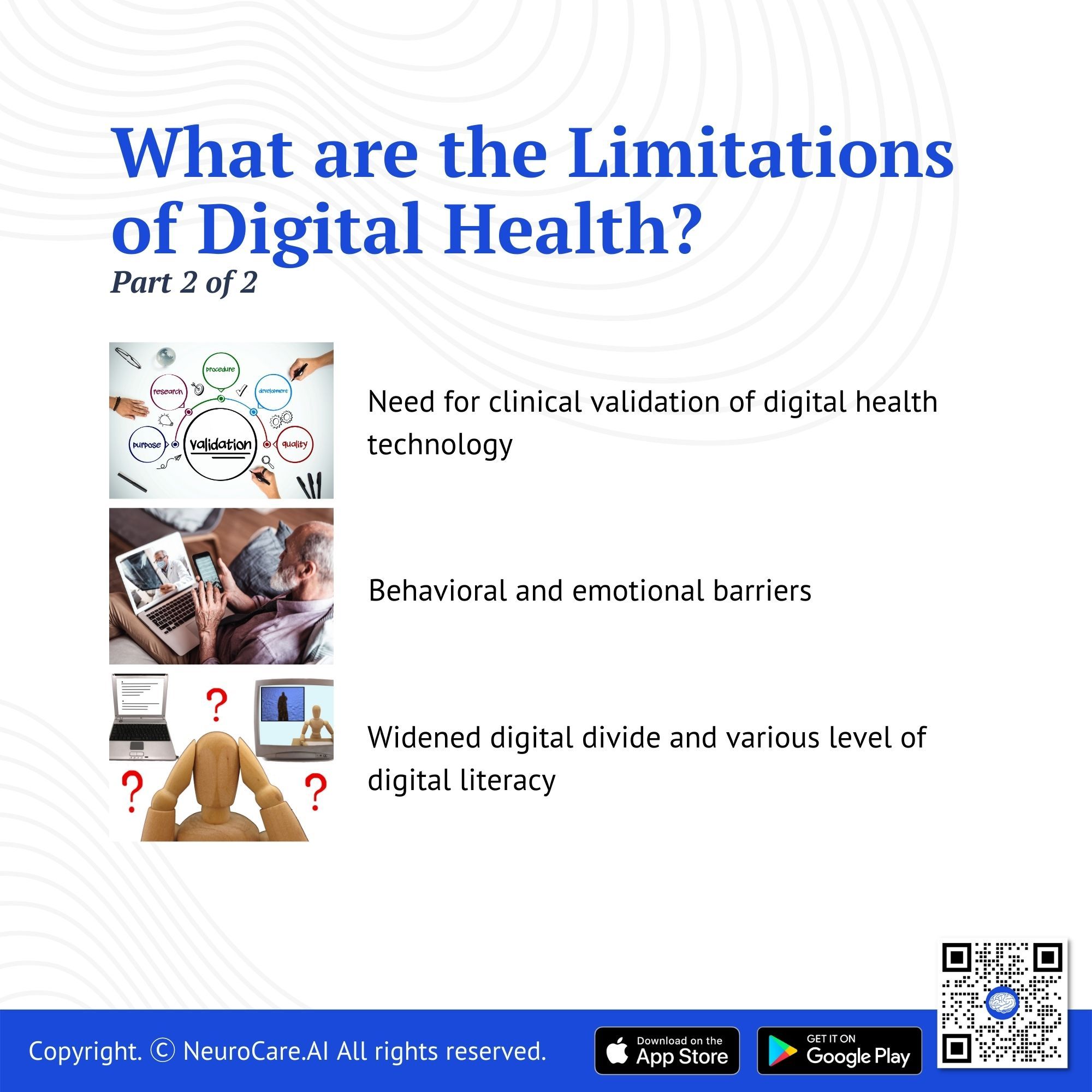
What are the Limitations of Digital Health?
While digital health is growing exponentially, the technology currently available has some limitations.
- Without an in-person physical examination, accurate data about the human body can be difficult to obtain.
- Some of the health data collected cannot be easily analyzed by computers.
- People's health records are at risk of being hacked and their personal information stolen, which is a privacy issue.
- Clinical validation of most digital health technologies is lacking. It may be necessary to conduct clinical trials to validate digital tools before stakeholders decide which technology is best.
- Behavioral and emotional barriers prevent patients, their families, and doctors from adopting digital health.
- The widened digital divide in some world regions and various levels of digital literacy among consumers may result in unequal access to healthcare, as well as issues relating to storing, accessing, sharing, and owning data.
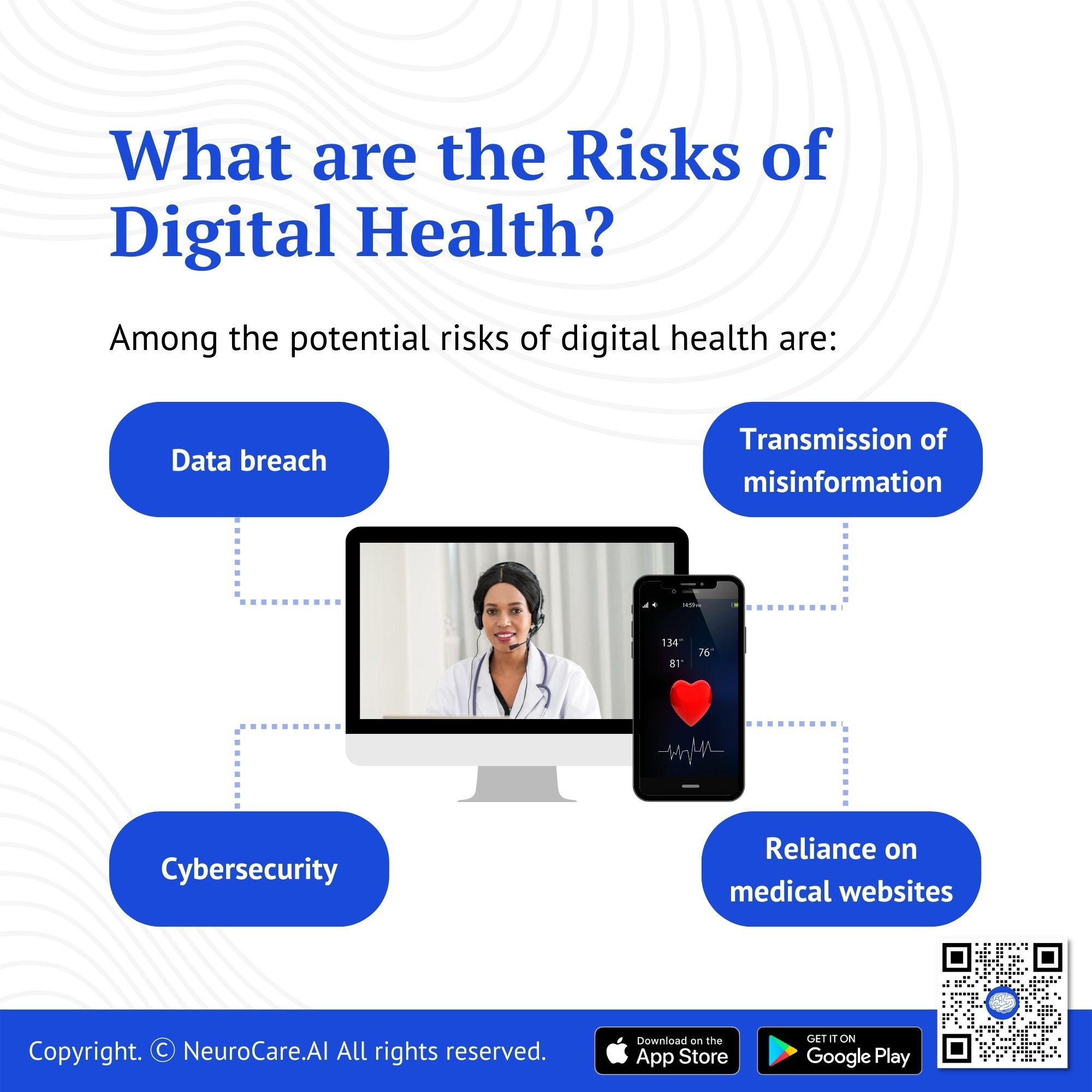
What are the Risks of Digital Health?
Medical devices that are legally marketed have both benefits and risks. In order for devices to be marketed, the FDA (U.S. Food and Drug Administration) must clear, authorize, and approve each device based on the reasonable assurance that it is safe and effective.
Among the potential risks of digital health are:
- Data breach. The use of individual data for purposes other than those intended by the digital health user poses a potential safety risk to the user. It is important to store data safely and to encrypt information.
- Cybersecurity. In the same way as other computer systems, medical devices are susceptible to security breaches, potentially compromising their safety and effectiveness.
- Transmission of misinformation. Numerous medical websites offer all types of advice and treatment options on the internet. Some of these websites aren't even run by healthcare professionals, and the information on them is collected from Wikipedia and other non-peer-reviewed sources. There is a tendency for people to subscribe to these sites believing that all the information is accurate.
- Reliance on medical websites. Increasing the focus on digital health may undermine patient trust in healthcare workers. An example of this is the anti-vaccination movement, which is gaining momentum and becoming more vocal. The relationship between the healthcare team and the patient is at the heart of health and wellness after all. Traditional face-to-face encounters along with digital health tools may well become the future standard of care.
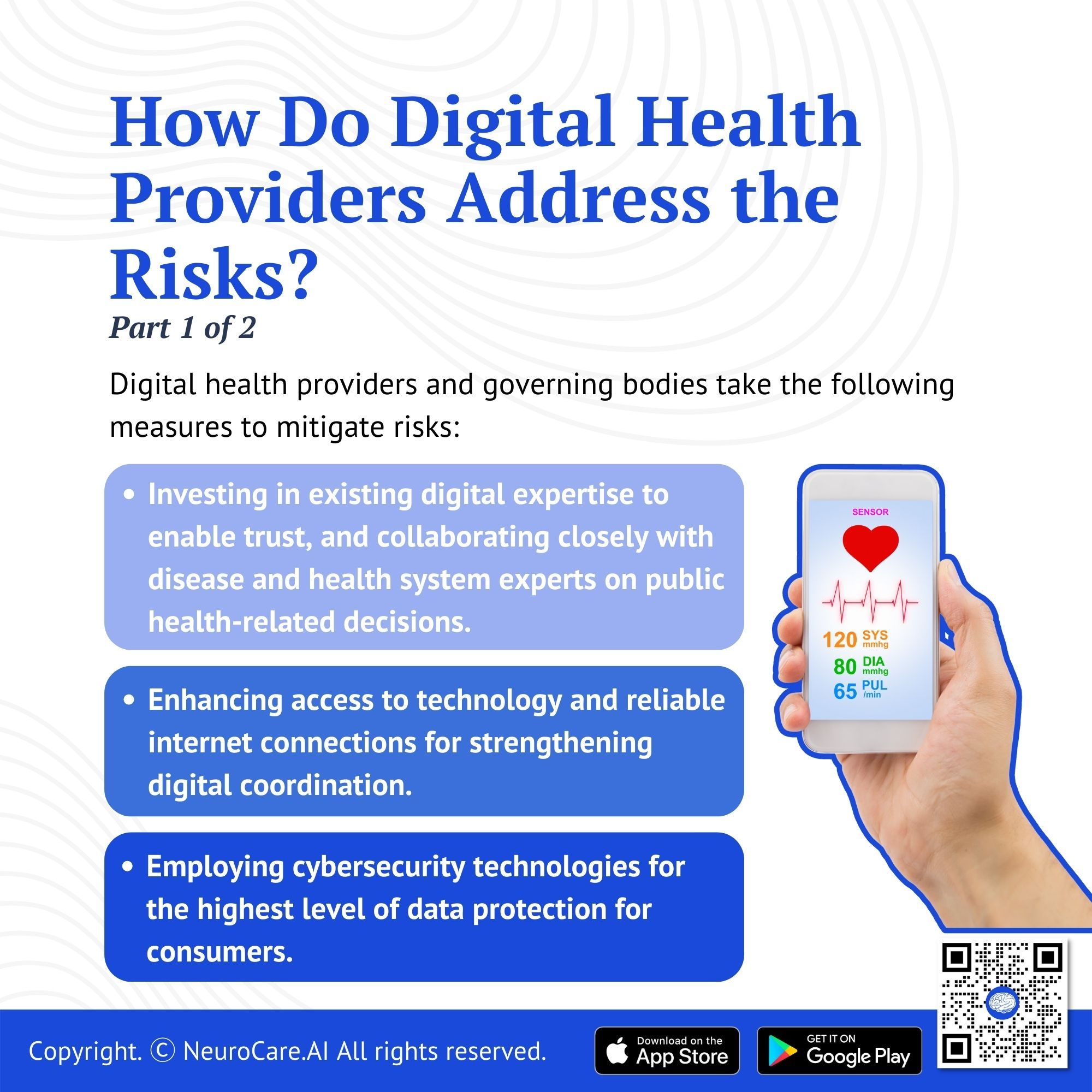
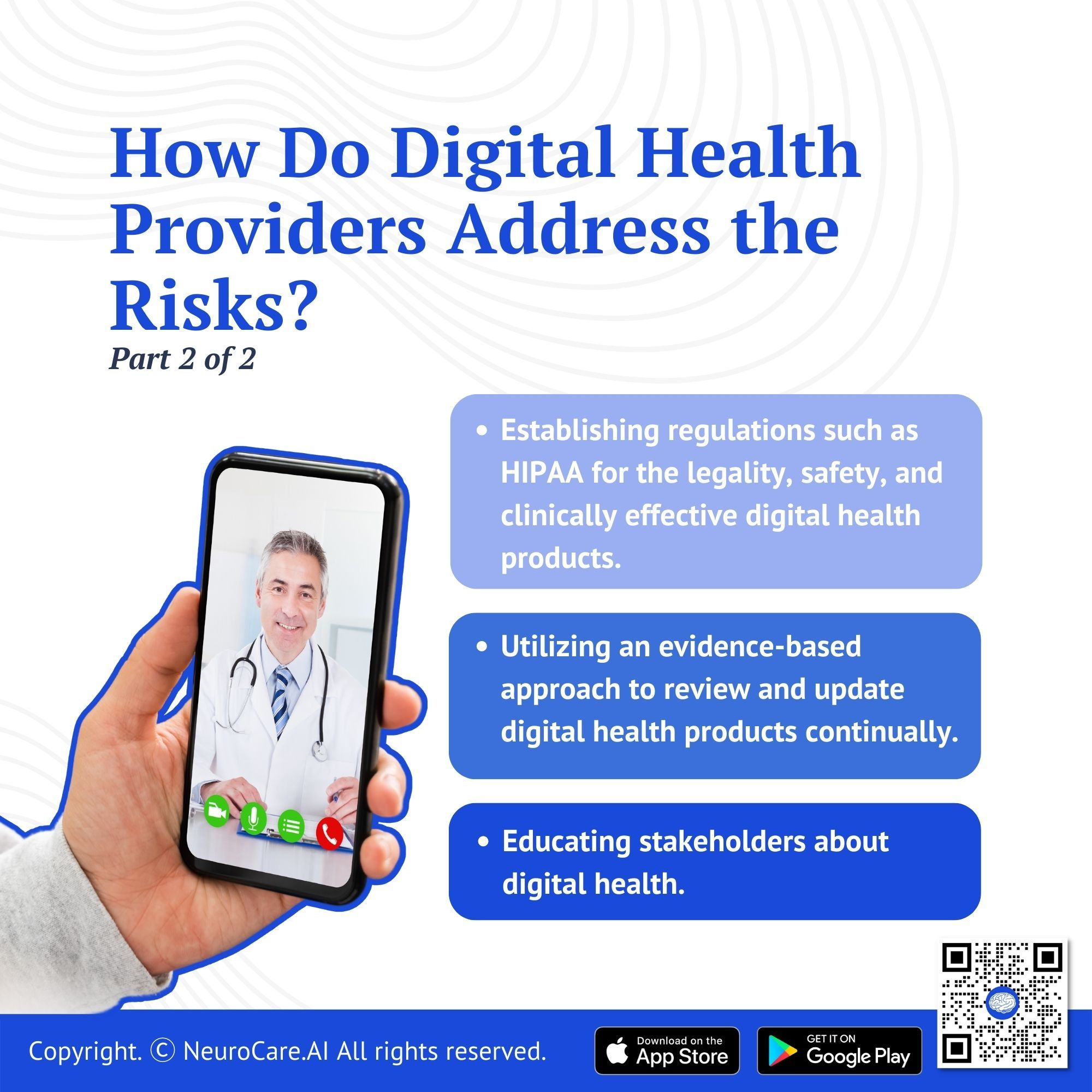
How Do Digital Health Providers Address the Risks?
Taking proactive measures to mitigate the risks is essential for providers of digital health. They can achieve this by developing a robust data strategy, investing in new technologies, hiring more data scientists, and providing training to their employees. Digital health providers and governing bodies take the following measures to mitigate risks:
- Investing in existing digital expertise to enable trust, and collaborating closely with disease and health system experts on public health-related decisions.
- Enhancing access to technology and reliable internet connections for strengthening digital coordination.
- Employing cybersecurity technologies for the highest level of data protection for consumers.
- Establishing regulations such as Health Insurance Portability and Accountability Act (HIPAA) for the legality, safety, and clinically effective digital health products.
- Utilizing an evidence-based approach to review and update digital health products continually.
- Educating stakeholders about digital health.
The Future of Digital Health
The future of healthcare will be dominated by digital health. Digital health will become increasingly significant as people become more aware of their health. Considering its many benefits for patients and doctors, digital health is an important topic that should be discussed more often.
Reference:
United States Food and Drug Administration. (2020). What is digital health? https://www.fda.gov/medical-devices/digital-health-center-excellence/what-digital-health
Ronquillo, Y., Meyers, A., & Korvek, S. J. (2022, May 8). Digital health. Treasure Island. https://www.ncbi.nlm.nih.gov/books/NBK470260/
Bernstein, C. (n. d.), Digital health (Digital healthcare). TechTarget. https://www.techtarget.com/searchhealthit/definition/digital-health-digital-healthcare
Ong, M. K., Pfeffer, M., & Mullur, R. S. (2022, June 13). Telemedicine for adults. UpToDate. https://www.uptodate.com/contents/telemedicine-for-adults?search=digital health&source=search_result&selectedTitle=1~7&usage_type=default&display_rank=1
Wong, Z. S. & Rigby, M. (2022, January). Identifying and addressing digital health risks associated with emergency pandemic response: Problem identification, scoping review, and directions toward evidence-based evaluation. International Journal of Medical Informatics, 157. https://doi.org/10.1016/j.ijmedinf.2021.104639
Read More about Digital Health:
DISCLAIMER:
The information in this document is for general educational purposes only. It is not intended to substitute for personalized medical professional advice. NeuroCare.AI makes every effort to provide accurate and timely information, but makes no guarantee in this regard and disclaims responsibility for adverse consequences resulting from its use. For further information, consult a physician and the organization referred to herein.
AizaMD™: Revolutionizing Clinical Documentation
Discover the power of our ambient clinical documentation system, designed to transform clinical encounters into structured SOAP notes with unmatched ease. Experience exceptional value for less than $3 per day—cheaper than your daily coffee!
- Save Time: Free up over 90 minutes daily for each provider.
- Boost Revenue: Increase daily revenue by at least $1,000 per provider.
- Enhance Coding Quality: Our detailed documentation supports superior coding accuracy, ensuring optimal reimbursement.
- Maximize Engagement and Interaction: Dedicate more time to patient care and less to typing, fostering richer and more effective conversations between clinicians and patients
AizaMD™: Automated Radiology Report Generation!
Discover our breakthrough Radiology AI reporting platform built on Ambient AI. It enhances productivity and minimizes fatigue. Benefit from best-in-class accuracy with our automated radiology report generation, all at market-leading pricing.
📈 Efficiency: Cut dictation times by up to 50% (Less words, More report!
🎯 Focus: Keep your eyes on the images, not the keyboard!
💸 Revenue: Boost revenue by at least 20%
📑 Clarity: Patient summary in plain English
